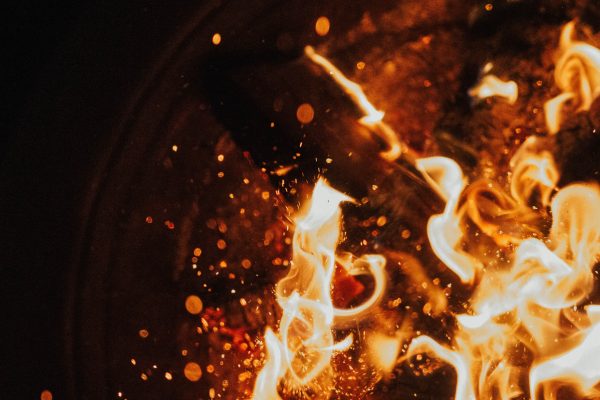The Remnantنموونە


Shadrach, Meshach, and Abednego stood before the white-hot rage of king Nebuchadnezzar and a literal furnace. The choice before them was to either bow before an idol, or burn to death.
Like Daniel, the three Hebrew young men had gained favor and position in Babylon. But when king Nebuchadnezzar set up a golden image of himself and required that when the music played every person would bow down and worship the image, the three teenagers refused.
The consequences of their refusal were clear. Nebuchadnezzar said, “If you do not worship, you will be cast immediately into the midst of a burning fiery furnace. And who is the god who will deliver you from my hands?” (Daniel 3:15)
The Hebrews were on such a different playing field than Nebuchadnezzar that they didn’t even directly answer his question.
“O Nebuchadnezzar, we have no need to answer you in this matter. If this be so, our God whom we serve is able to deliver us from the burning fiery furnace, and he will deliver us out of your hand, O king. But if not, be it known to you, O king, that we will not serve your gods or worship the golden image you have set up” (Daniel 3:16-18).
Nebuchadnezzar was fixated on who could deliver them, but for the Hebrews that issue was settled. The question wasn’t who could deliver them, but what if he didn’t?
The question of “but if not” is the hardest part when we stand before our own fiery trials. Even if deliverance doesn’t come right away, we know his presence goes with us and that means we won’t be overcome.
The Lord’s physical presence with the young men in the midst of the fire is the most glorious part of this story. For when Nebuchadnezzar looked into the furnace and asked, ”Did we not cast three men bound into the fire? I see four men unbound walking in the midst of the fire, and they are not hurt; and the appearance of the fourth is like a son of the gods” (Daniel 3:24, 25).
We may not come out of all of our fiery furnaces unharmed, but as believers there’s one furnace we’ll never have to face. The furnace of God’s wrath.
Praying in Gethsemane before his crucifixion, the furnace of God’s wrath was set at its max capacity, and Jesus was sweating great drops of blood (Luke 22:44).
While he prayed to the Father to let the cup pass, Jesus prayed his “but if not” prayer. He said, “Father, if you are willing, remove this cup from me. Nevertheless, not my will, but yours, be done” (Luke 22:42).
God’s will was not to deliver Jesus from his furnace, and for that we praise God! For Jesus suffered in the furnace of God’s wrath, so that we would never have to (Romans 8:32).
Take courage from this familiar story, and from others who’ve stood before counsels and kings and determined they would rather burn than bow. Shadrach, Meshach, Abednego, and even Jesus, prayed for God to deliver, but knew that if he didn’t, they’d still obey.
The three Hebrews knew it was better to be in a furnace with the Lord than to be outside of one without him. Let’s pray that we’ll face our furnaces with faith and not betray our conscience or his Word.
Questions to Consider:
- Consider the “but if not” statement of Shadrach, Meshach, and Abednego. How were they able to stand firm regardless of the consequences in the “heat the moment?” Do you think that decision came easily for them? Why or why not?
- Consider Jesus’ “but if not” prayer to the Father: he was asking if there was any other way to redeem his children instead of facing the cross. God didn’t provide deliverance for Jesus from the cross, but instead delivered us through the cross. How does that bring comfort, hope, and peace to your life right now?
Scripture
About this Plan

God always preserves a remnant of true believers in an unbelieving world. They are his faithful witnesses who stand against the world’s systems, fleshly appetites, and devilish schemes. Often they stand alone facing floods, fires, lions, and giants, in order to faithfully follow God. In this seven-day plan, reconsider some of your favorite biblical stories through the eyes of the believing and courageous remnant.
More









